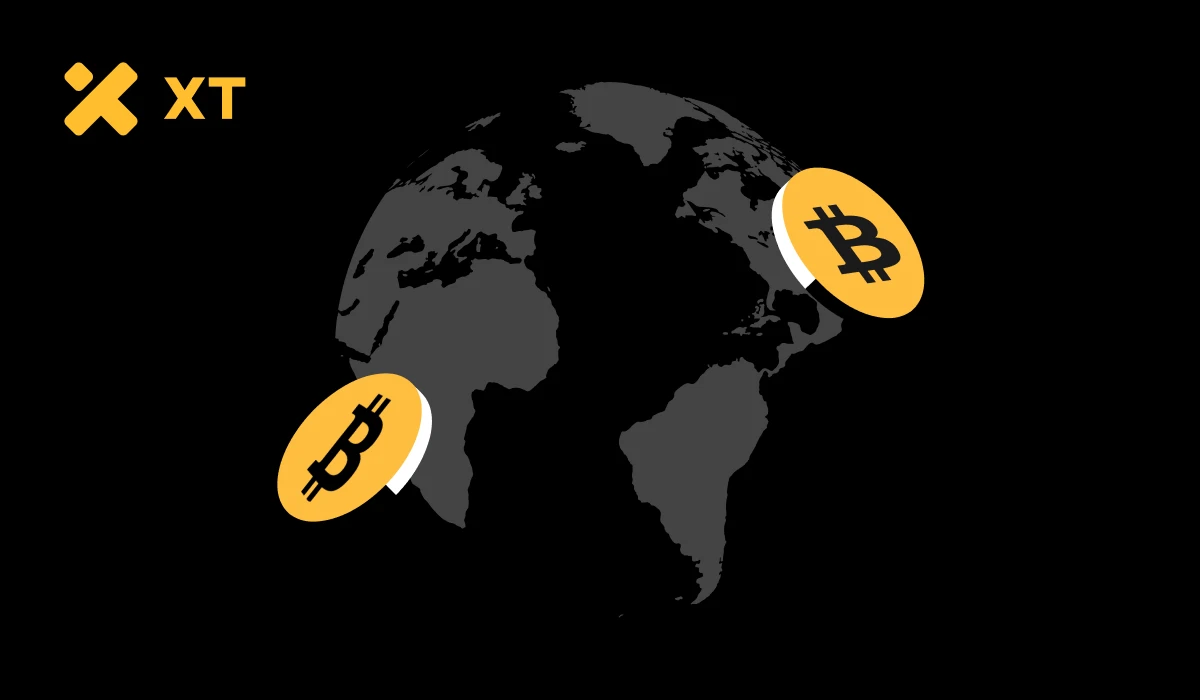Cryptocurrencies, represented by Bitcoin , are quietly changing the global financial landscape, providing a new form of decentralized, secure and reliable currency. However, this change has also triggered heated discussions among governments and regulators. Some countries regard cryptocurrencies as the key to future financial development, actively embrace and promote their innovation and application; but some countries are wary of their risks and even ban them completely. This article will analyze the top ten cryptocurrency-friendly countries in the world and learn how they support the rapid development of this emerging field. At the same time, it will show you which regions have imposed bans on Bitcoin, and deeply explore the cryptocurrency policies and positions of major economies such as the United States, the United Kingdom, Canada, China and Japan.

Table of contents
Cryptocurrency-friendly countries
Regions where cryptocurrency is illegal
Cryptocurrency policies of major countries
Cryptocurrency-friendly countries
Canada
With its proactive regulatory policies, Canada has successfully become one of the leading countries in the development of blockchain and cryptocurrency in the world. The country considers cryptocurrencies as commodities and imposes capital gains tax, providing investors with clear tax guidance. At the same time, Canada classifies cryptocurrency exchanges as financial services institutions (MSBs), requiring strict compliance with anti-money laundering (AML) and customer identity verification (KYC) regulations. This regulatory approach that strikes a balance between innovation and security has not only promoted the prosperity and development of cryptocurrency exchanges and blockchain start-ups, but also made the industry ecosystem more sound. In addition, Canadas cold climate and low energy costs have created unique conditions for Bitcoin mining, further consolidating its position as a cryptocurrency-friendly country.

Image source: The Logic
Germany
Germany is a leader in Europes cryptocurrency policy, known for its forward-looking and pragmatic attitude. Bitcoin is defined as a private currency, legalizing its medium of exchange status, which means that holding Bitcoin for more than one year is tax-free, which is very attractive to long-term investors. For short-term transactions, taxes are only required when the single profit exceeds 600 euros. At the same time, Germanys regulatory system is led by the Federal Financial Supervisory Authority (BaFin), ensuring that the market operates transparently and effectively combats fraud. By achieving an ideal balance between strict regulation and investor-friendly policies, Germany has successfully established itself as a core hub for cryptocurrency innovation and institutional adoption, attracting a large amount of capital and companies.

Image source: Unchained Crypto
Singapore
Singapore has successfully become one of the most crypto-friendly countries in the world with its forward-looking regulatory policies. The Payment Services Act provides a clear regulatory framework for digital payment tokens, ensuring the security and compliance of transactions between users and businesses. In addition, Singapores tax policy also adds to its appeal, with long-term investments in cryptocurrencies exempt from capital gains tax. However, for companies engaged in cryptocurrency transactions, related profits must be declared and income tax must be paid in accordance with regulations. The Singapore government actively promotes the development of blockchain technology and has cultivated a thriving ecosystem including well-known exchanges such as KuCoin and Phemex. With continuous innovation support and a sound legal environment, Singapore has become an ideal place for global investors and blockchain entrepreneurs.

Image source: The Cryptonomist
Switzerland
Switzerlands Crypto Valley is located in Zug and is an important hub for global blockchain innovation and cryptocurrency development. Switzerlands tax policy has regional flexibility, and some regions have implemented tax exemption policies for long-term cryptocurrency holdings, which has attracted a large number of investors and companies. At the same time, the Swiss Financial Market Supervisory Authority (FINMA) provides reliable legal protection for the industry with its clear regulatory rules and highly transparent compliance mechanisms. This favorable policy environment, coupled with the vitality of start-ups, institutional support, and active participation of investors, has put Switzerland in a global leading position in the process of integrating blockchain technology and cryptocurrency into the mainstream financial system.

Image source: IFLR
Portugal
Portugal has become an ideal place for crypto entrepreneurs and investors with its friendly cryptocurrency tax policy. The country exempts individuals from VAT and capital gains tax on Bitcoin transactions, which makes it very attractive to long-term investors. At the same time, the Portuguese government strongly supports the development of blockchain technology and provides a solid guarantee for the growth of the digital asset industry by formulating a clear regulatory framework. In particular, the capital Lisbon, with its active entrepreneurial environment and policy support, has attracted a large number of blockchain startups and cryptocurrency exchanges , and gradually developed into an important center in this field. This not only enhances the local industry influence, but also further consolidates Portugals leading position in global cryptocurrency applications and technological innovation.

Image source: Blockchain News
malta
Malta has become a popular destination for blockchain and cryptocurrency companies around the world due to its reputation as the Blockchain Island. Its Virtual Financial Assets Act (VFA) provides a clear and comprehensive legal framework for the industry, ensuring that companies can operate with confidence in a compliant and transparent environment. At the same time, Malta has demonstrated its high support for the cryptocurrency industry through a series of preferential tax policies, attracting many start-ups and international investors. Companies in Malta not only enjoy fiscal benefits such as tax exemptions, but also promote capital reinvestment and continued business expansion through these policies. In addition, Malta has signed more than 70 international agreements to avoid double taxation, providing an ideal place for cryptocurrency investors and entrepreneurs seeking a stable and innovative regulatory environment, further consolidating its leading position in the global crypto field.

Image source: ComplyAdvantage
Estonia
Estonia has always been at the forefront of digital innovation, and has promoted the widespread use of blockchain and cryptocurrency with its advanced electronic governance system. Its e-Residency program provides convenience for global entrepreneurs, allowing them to remotely register companies without being present in person, creating a truly borderless digital economy. At the same time, Estonias tax policy is very friendly to cryptocurrencies. It not only grants tax exemptions for some digital activities, but also provides clear legal protection for investors and companies. In addition, the government has further consolidated Estonias international reputation for security and transparency through strict anti-money laundering (AML) and customer identity review (KYC) policies, making it a popular choice for cryptocurrency companies.

Image source: LawTrust International
Gibraltar
Gibraltar actively embraces blockchain and cryptocurrency technology, and has attracted a large number of digital asset-related companies with its safe and stable environment and strong supervision. The field is regulated by the Gibraltar Financial Services Commission (GFSC), which has extremely high standards in compliance and investor protection. At the same time, Gibraltar also offers an attractive tax policy, exempting Bitcoin transactions from capital gains tax and implementing a low corporate tax rate. This unique combination of strict supervision and tax incentives makes Gibraltar an ideal place for many start-ups and mature companies, meeting their dual needs for stability and transparency.

Image source: CryptoSlate
Luxembourg
Luxembourg is well-known for its excellent financial stability, which also applies to the blockchain and cryptocurrency sectors. The country provides investors and businesses with a clear and secure regulatory environment, ensuring that they can operate smoothly under legal protection. In Luxembourg, individuals enjoy capital gains tax exemptions on Bitcoin transactions, while blockchain companies enjoy friendly tax policies that support innovation and development. In addition, Luxembourg, with its strategic location in the heart of Europe and advanced financial infrastructure, has attracted many companies that want to expand their cryptocurrency business, making it an ideal international development base in this field.

Image source: Freeman Law
slovenia
Slovenia has seamlessly integrated Bitcoin into daily life, with more than 1,000 locations supporting cryptocurrency payments across the country, and flexible financial regulatory policies that provide a strong boost to blockchain innovation, attracting an influx of local and international startups. For individual investors, occasional cryptocurrency transactions are tax-exempt, making Slovenia an ideal choice for those who want to easily participate in cryptocurrency transactions and avoid cumbersome regulations. With this forward-looking development strategy, Slovenia has successfully created a vibrant ecosystem that supports the development of blockchain technology.

Image source: quverse.io
Regions where cryptocurrency is illegal
Despite Bitcoins popularity around the world, some countries have restricted or even banned its use due to concerns about price volatility, decentralized management and potential abuse.
China
China has banned bitcoin mining and trading across the country, citing concerns about financial risks and environmental impacts, while the Chinese government is actively promoting the development of its central bank digital currency (CBDC) as a state-led alternative to decentralized cryptocurrency systems.
Saudi Arabia
Saudi Arabia has imposed strict restrictions on the use of Bitcoin, prohibiting financial institutions from participating in related transactions. Although individuals can hold Bitcoin, its popularity is greatly limited due to the lack of institutional support.
Pakistan
Pakistan has banned cryptocurrency trading and mining under a strict anti-money laundering (AML) policy to prevent illegal capital flows. However, the underground cryptocurrency market remains active, exposing the many challenges faced in regulatory enforcement.
Bolivia
Bolivia has banned cryptocurrency trading since 2014, primarily to protect consumers from scams and market volatility. The government specifically noted that the risks posed by unregulated digital assets cannot be ignored.
Tunisia
Tunisia has banned Bitcoin trading in an effort to maintain control over its monetary system, but the lack of clarity in regulation has hampered the promotion and acceptance of cryptocurrencies in the country.
The bans reflect governments’ concerns about economic stability and potential abuse, while also revealing a stark divide between acceptance of innovation and resistance to decentralization.
Cryptocurrency policies of major countries
USA
The United States has adopted a multi-level and multi-dimensional strategy in cryptocurrency regulation, with different state and federal policies focusing on different aspects. The Internal Revenue Service (IRS) classifies Bitcoin as property, so it is subject to capital gains tax, and individuals and businesses are also required to truthfully report gains from Bitcoin transactions or sales. Federal agencies such as the Securities and Exchange Commission (SEC) are responsible for regulating initial coin offerings (ICOs), while the Commodity Futures Trading Commission (CFTC) is responsible for regulating Bitcoin futures trading. At the same time, local governments such as Wyoming have introduced cryptocurrency-friendly policies, creating a good development environment for blockchain companies. Despite the complex overall regulatory system, the United States remains an important hub for global cryptocurrency innovation and investment.
U.K.
The UK provides a clear and pragmatic framework for cryptocurrency regulation. According to the Financial Services and Markets Act of 2023, Bitcoin is classified as an asset, and its trading gains are subject to capital gains tax, and companies engaged in cryptocurrency-related businesses are required to fulfill tax and reporting obligations. The Financial Conduct Authority (FCA) is responsible for regulating cryptocurrency exchanges, ensuring consumer rights and enhancing industry transparency. At the same time, the UK is also concerned about the environmental issues brought about by Bitcoin mining and actively promotes sustainable development practices. With robust supervision and reasonable tax policies, the UK provides a safe and friendly development environment for cryptocurrency investors and businesses.
Canada
Canada has adopted a more advanced regulatory approach in the field of cryptocurrency, managing Bitcoin as a commodity. Bitcoin-related transactions are subject to capital gains tax, and the Canada Revenue Agency (CRA) has also provided detailed guidance to help investors simplify the tax filing process. Cryptocurrency exchanges operating in Canada are classified as money service businesses (MSBs) and must register with the Financial Transactions and Reports Analysis Centre (FINTRAC) and strictly comply with anti-money laundering (AML) and customer identity verification (KYC) regulations. This proactive regulatory approach strikes a good balance between promoting innovation and ensuring security, creating a thriving ecosystem for cryptocurrency exchanges and blockchain startups. In addition, Canadas cold climate and low energy costs also make it an ideal destination for Bitcoin mining.
China
China has adopted a very strict regulatory policy on cryptocurrencies, including a complete ban on Bitcoin mining, trading and initial coin offerings (ICOs). Officials said the move was mainly due to concerns about financial stability, speculative risks and the possibility that decentralized digital currencies could be used for illegal activities. At the same time, China will shift its focus to developing its own central bank digital currency (CBDC) - the digital yuan, to strengthen monetary control and provide a state-backed alternative to the market. Despite the restrictions on cryptocurrencies, China still maintains a significant influence in the global blockchain field with its technological innovation and policy-driven RD efforts.
Japan
Japan has been at the forefront of cryptocurrency regulation and is one of the first countries in the world to legalize Bitcoin and incorporate it into the regulatory framework through the Payment Services Act (PSA). Under this regulation, cryptocurrency exchanges are required to register with the Financial Services Agency (FSA) and strictly abide by compliance requirements to ensure consumer rights and maintain market stability. Despite the strict regulatory requirements, the acceptance of Bitcoin in Japan remains high, and many merchants support Bitcoin payments, which fully demonstrates Japans positive attitude and long-term vision to integrate cryptocurrencies into its own financial system.
Conclusion
Looking around the world, countries have different attitudes towards cryptocurrencies, which has led to different regulatory environments. Crypto-friendly countries such as Malta, Germany and Singapore have successfully created a prosperous ecosystem conducive to Bitcoin and blockchain innovation with sound regulations and support policies; while some regions, including China and Saudi Arabia, remain cautious about Bitcoin and even impose strict restrictions.
It is critical for investors and businesses to fully understand these distinct regulatory differences. With a secure and compliant trading platform such as XT.com , users can trade with greater confidence in the ever-changing crypto market.
As Bitcoin continues to reshape the global financial landscape, countries that actively embrace its potential are expected to take the lead in the next round of technological and economic changes. Whether you are an experienced investor or a novice, you should keep up with the policy trends in various regions to truly unleash the potential of cryptocurrency trading platforms and digital assets.
About XT.COM
Founded in 2018, XT.COM currently has more than 7.8 million registered users, more than 1 million monthly active users, and more than 40 million user traffic within the ecosystem. We are a comprehensive trading platform that supports 800+ high-quality currencies and 1,000+ trading pairs. XT.COM cryptocurrency trading platform supports a variety of trading products such as spot trading , leveraged trading , and contract trading . XT.COM also has a safe and reliable NFT trading platform . We are committed to providing users with the safest, most efficient, and most professional digital asset investment services.










